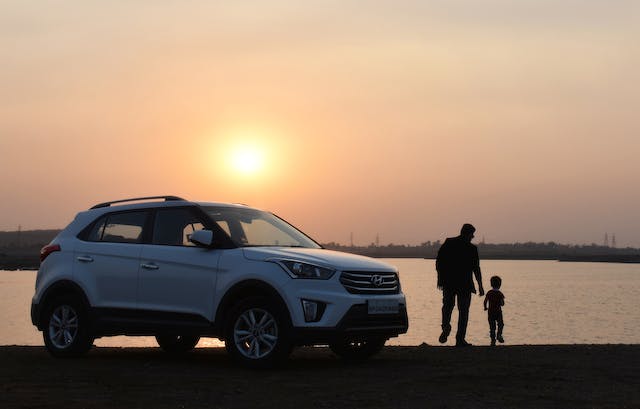One essential component of proper automobile ownership is auto insurance. In the case of an accident, theft, or damage to your car, it offers financial protection. Third-party auto insurance is one of the most important kinds of auto insurance. This article seeks to explore the intricacies of what constitutes and is covered by a third-party auto insurance policy.
Comprehending Automobile Insurance Providers
explanation
An insurance policy that covers injuries or damages to a third party brought on by your automobile is known as third-party auto insurance. Any person, vehicle, or piece of property that is not you, the policyholder, or your vehicle is referred to as a “third party” in this context. It is often the bare minimum required by law in order to operate a vehicle and is obligatory in many nations.

Legal Prerequisite
Having a minimum level of third-party auto insurance coverage is required by law in the majority of nations. This is to make sure that the injured individual has somewhere to turn if you cause an accident. You risk paying penalties, having your driving privileges suspended, or even going to court if you don’t have this insurance.
What Is Covered by Third-Party Auto Insurance?
1. Liability for bodily injuries
This element of third-party auto insurance pays for the other person’s medical costs and damages if they are injured in an accident in which you are at fault. It covers medical expenses, rehabilitation expenditures, and maybe even legal fees in the event that legal action is taken.
2. Liability for Property Damages
The expenses of replacing or repairing third-party property that was harmed in an accident you caused are covered under property damage responsibility. This may apply to any other property that may have been a part of the collision, such as buildings, fences, or other cars.
Legal Fees
In the event that an accident brings you to court, third-party insurance can pay all or part of your legal bills, including settlements, court fees, and attorney fees.
What Is Not Covered by Third-Party Auto Insurance?
1. Injury to Your Car
The fact that third-party auto insurance does not cover damage to your own automobile is one of its main drawbacks. If you cause an accident and your automobile is damaged, you are responsible for paying for all necessary repairs or replacements.
2. Individual Wounds
Neither your passengers’ nor your personal medical costs are covered by this coverage. You would have to pay for medical payments coverage or personal injury protection in order to get such coverage.
3. Burglary or Damage
Third-party auto insurance won’t cover anything if your automobile is stolen or damaged. You would need comprehensive insurance for these kinds of situations.
Third-Party Auto Insurance: Its Significance
1. Adherence to Law
As was already noted, third-party auto insurance is mandated by law in many areas. If you don’t have it, there might be detrimental effects on your finances and legal standing.
2. Protecting Your Money
The expenses of medical bills, property damages, and perhaps legal fines may be quite high if you cause an accident. Insurance from third parties protects you from having to shoulder the whole cost.
3. Mental Calm
Driving with a great deal of peace of mind might come from knowing that you have some financial security in case of an accident.
Further Information Regarding Third-Party Auto Insurance
Limitations and Exclusions
Although third-party auto insurance is an important kind of protection, it’s critical to understand its restrictions. They might consist of:
1. Drivers by Name
Who is allowed to drive the insured vehicle is specified in many plans. The insurance company could not pay for the losses in an accident if the driver is not named on the policy.
2. Willful Deeds
In the event that illegal activity or intentional acts cause an accident, third-party insurance could not cover it. This covers things like racing, driving while intoxicated, and intentionally causing an accident.
3. Hobbies Other Than Driving
The insurance may not pay out if the accident happens when the car is being used for activities that aren’t covered by the policy (like off-roading in a non-off-road coverage).
4.Contractual Obligations
Liabilities resulting from contracts, such towing another car under a paid contract, are often not covered by third-party insurance.
Bonus for No Claim (NCB
You may increase your No Claim Bonus by carrying third-party auto insurance, which is one of its advantages. Providers of insurance provide this discount to customers who haven’t filed a claim throughout the course of the policy year. It encourages cautious driving and may result in lower insurance costs in the years that follow.

Extras for Broader Protection
Despite the fact that third-party insurance is legally required, you may improve your coverage by adding on other things, such as:
1. Individual Accident Insurance
This covers the policyholder’s and the passengers’ injuries or deaths while they are in the insured vehicle.
2. Depreciation-Free Coverage
With this add-on, you may be confident that in the event of an accident, you will be compensated for the entire cost of the replacement parts—depreciation not included.
3. Towing and Roadside Help
This service offers assistance with towing, tire replacements, and fuel delivery in the event of an emergency or breakdown.
4. Engine Defense
This add-on protects against engine and component damage from things like hydrostatic lock, leaky oil, and waterlogging in your car.
A Look at Some Factors for Selecting a Third-Party Policy
1. The value declared as insured (IDV)
Think about the Insured Declared Value if you’re choosing a comprehensive insurance in addition to third-party liability coverage. It’s the vehicle’s current market worth, and it’s important to know for figuring out coverage in the event of theft or complete loss.
2. Premium for Policy
Examine the rates offered by various companies. The government typically regulates third-party insurance costs, but the extra features and services offered might differ greatly.
3. The Cashless Garage Network
Verify if the insurance company offers cashless repairs at any of the garages in its network. In the event of an accident, this may be a very useful convenience.
Factors Affecting the Cost of Third-Party Auto Insurance
1. Age and Type of Vehicle
Your car’s age and kind have a big influence on how much your third-party auto insurance will cost. Newer or more costly automobiles may have higher rates, while older cars may have cheaper ones. When setting rates, insurance companies take into account things like the year and type of your car, its market worth, and the cost of replacement components.
2. Power Unit Capacity
Another important consideration is the engine capacity of your car. Because they are seen to be linked to greater dangers, cars with bigger engines usually have higher insurance rates.
3. Whereabouts
Your insurance premium is largely influenced by where you live. Higher risk translates into higher premiums in areas with greater traffic congestion and crime rates. Likewise, your premium could be impacted if you reside in a region that often experiences natural catastrophes.
4. Mastering the Past
One of the most important aspects that insurers take into account when determining your rate is your driving history. Your premium is probably going to be more if you have a history of claims, moving infractions, or accidents. A spotless driving record, however, may result in cheaper rates.
5. Bonus for No Claims
A No Claim Bonus (NCB), as was previously indicated, may assist in reducing your rates. You get a reduction on your premium each year that you do not file a claim; this discount may build up over time.
6. Optional Tax Deductibles
You may lower your premium by choosing a greater voluntary deductible, which is the amount you agree to pay out of pocket in the event of a claim. But in the event of an accident, this means you’ll have to pay more.
7. Theft Prevention Tools
Your premium may be reduced by installing security and anti-theft systems in your car. These gadgets lessen the possibility of theft, which is something that insurance companies are quite concerned about.
8. Level of Coverage
Your premium may also be impacted by the coverage quantity or sum insured that you choose. While reduced coverage might result in more reasonable rates, larger coverage quantities are associated with higher premiums.
9. Extras
Your premium may go up if you add more riders and other features to your insurance. To prevent needless spending, it’s critical to think about which add-ons are required for your particular circumstance.
How to Choose the Best Auto Insurance for Third Parties
1. Compare Quotations:
Obtain estimates from other insurance companies first. You can locate the greatest offers with the use of online comparison tools.
2. Evaluate Reporting:
Recognize your unique requirements. In contrast to a newer, more expensive automobile that could demand complete coverage, an older vehicle may need less coverage.

3. Examine the Standing:
Examine the insurance firms’ reputations. Reviews and comments from clients might provide insightful information about the caliber of their services.
4. Examine Rebates:
If you combine your vehicle insurance with other policies, such as house insurance, ask about any potential savings, such as multi-policy discounts.
5. Examine the Small Print:
Read the policy’s terms and conditions carefully and make sure you understand them. Take note of any restrictions or exclusions.
6. Garage Network:
Make sure the insurance company has a network of approved garages in your area; this might streamline the claims procedure.
7. Help for Customers:
Check how helpful and quick their customer service is. In the event of an accident, you should choose a business that can help you right away.
In summary
To sum up, having third-party auto insurance is essential to driving a responsible vehicle. In the event that you are at fault for an accident, it covers losses and harm to a third party. It does not, however, cover damage to your own car, but it does satisfy a significant legal obligation and offers a vital degree of financial security. It’s always a good idea to speak with an insurance expert to learn about the particulars and your local possibilities. Recall that having sufficient insurance protects you as well as encouraging safer and more responsible driving among other people.